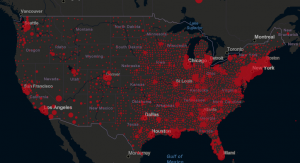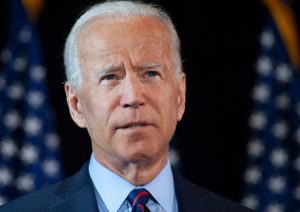It is too soon to tell what the geopolitical impact of SARS-CoV-2 will be over the next few months or years. One thing which is clear is that the virus has underlined how there is a general lack of leadership in world affairs at this point in time.

In the first place, the United States has not assumed this role in this crisis. President Trump’s, America First focus and the policies his administration has pursued essentially preclude a more collectivist stance and the administration’s gross mishandling of the crisis in the U.S. has left it without anything to say to any other country. The mishandling of the situation on the USS Theodore Roosevelt and its Captian, Bret Crozier, is symptomatic of this administration’s focus on politics, rather than health and safety.
Secondly, Europe has also failed to respond with any kind of collective response to the situation. Essentially, the virus has shown very clearly that the European project is subordinate to national concerns. When things get serious, the nation-state takes over, closes its borders and does what it thinks it needs to do to keep people safe and the economy more or less intact.
In some ways, China may have actually emerged from the crisis with a more positive story than it had before it although its situation is actually quite nuanced. Clearly, the Chinese government could have done more to stem the outbreak at its source and is, to some degree, responsible for the tremendous loss of life and economic damage. China has shown, however, that its totalitarian and centralized political system is capable of dealing with threats of this order of magnitude once it started to bring all of its resources to bear. It is also reportedly providing international assistance for example to Italy.
As I write this blog we have double the confirmed cases in Italy and Spain than China had and cases are still rising exponentially in the United States. New York City, for example, is in much worse shape than Wuhan where the whole thing started.
As the crisis unfolded there was some speculation in the western press that the crisis could call into question the leadership of the Chinese Communist Party but that was clearly premature. What is unclear at this time is the economic impact that the crisis will have on China due to the temporary shut down in Hubei and also the drop in demand for Chinese made goods across a number of product categories. Longer-term, the outbreak has demonstrated the vulnerabilities of global supply chains and I know that many large companies are re-thinking some of their sourcing decisions to improve their strategic resilience.
In a thoughtful article in the Financial Times a few weeks ago, Yuval Noah Harari, the author of Sapiens and Homo Deus, wrote about how the world may react in one of two ways as a result of the outbreak. One path will take us down the road to more nationalistic concerns, tighter surveillance of the populations and a smaller, poorer world in exchange for a false sense of safety. The other is that the crisis will show how urgently we need to cooperate with each other to deal with this and other critical issues facing the world.

While so far the indications may lead us to think that we will head down Harari’s darker road, I am still optimistic. What I see is the resilience of civil society in the West and the generosity of people who are helping each other in these difficult times.
I also think that this crisis will show how important it is to have people with real integrity in public office and hope that voters around the world will throw their support to candidates who are competent, understand the complex issues that we face, and steady in times of trouble.

